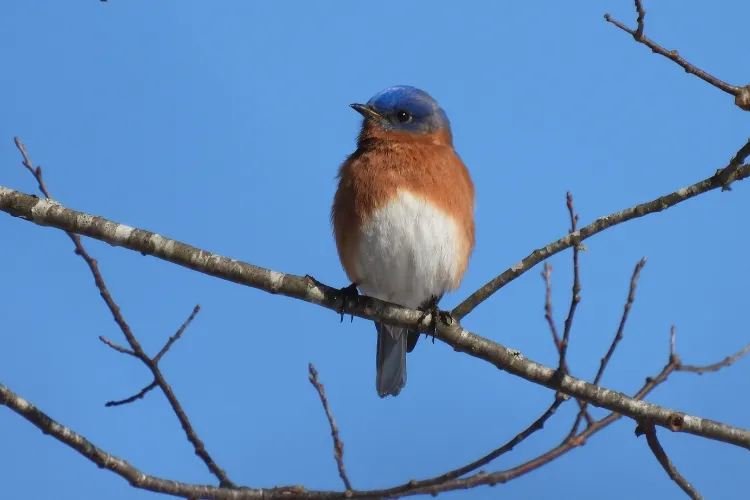
Climate change and habitat loss are making things difficult for our local feathered friends, as revealed in a 2023 report from the Audubon Society of Rhode Island.
On January 28, 2023, the first Audubon State of Our Birds Report was presented to a sold-out “Birds Across New England: The Audubon Regional Conservation Symposium” at the Audubon Nature Center and Aquarium in Bristol, Rhode Island, and revealed some shocking statistics:
- Over one-third of the birds on Audubon Refuges are experiencing long-term population declines.
- Only a quarter of all species are showing signs of long-term increases in population.
- Overwintering species are faring only slightly better, with just under one-third exhibiting declining population trends.
These findings are the results of the Audubon Avian Research Initiative, developed in September 2021 to document the bird populations utilizing the nearly 9,500 acres of land managed by the Society.
This phenomenon isn’t inclusive to the Ocean State. According to a study published in the journal Science, the avian has declined by some 29 percent, and since 1970, North America has lost more than 2.9 billion birds.
And the biggest toll is being seen in common birds; backyard companions like sparrows and blackbirds are taking the biggest hit. According to Science, the greatest declines are being seen in aerial insectivores, such as barn swallows, bank swallows, chimney swifts, and species associated with grassland habitats. Science also explains that even invasive or introduced species are faring poorly, which suggests that the declining species aren’t being replaced by species that do better in human-altered landscapes.
While it might be easy to dismiss these findings as just another news scare, in truth, the health of our bird populations is inextricably linked to the human population. Famed 20th century ornithologist Roger Tory Peterson once referred to birds as an ”ecological litmus paper,” utterly crucial to the health of numerous ecosystems. You might not know that a fifth of all birds on the Earth pollinate wildflowers and fruiting trees. Birds also disperse seeds, which contributes to habitat health. They scavenge dead and decaying organic matter, and they serve as natural control agents for agricultural and household pests.
Dr. Charles Clarkson, Audubon’s Director of Avian Research, puts it bluntly: “We need birds more than they need us.”
“And we are slowly losing them from the fabric of our existence,” he continues. “Because of human population growth, the loss of natural habitat, the climate crisis and more, birds are becoming increasingly scarce.”
But there still is hope! “Conservation is a lengthy process,” Clarkson continues. “Stopping the decline is not going to happen overnight. But we need to get the message out now. It’s important to engage the public, not just the conservation community. The hope is that the more people that become aware of the loss of our birds, the more we can act together. Our collective actions and choices can make a real difference.”
In response to these findings, Audubon is starting a monitoring and management scheme to reverse the declining trends in Rhode Island’s birds. A total of nine species have been selected as “Responsibility Birds,” and receive additional monitoring to determine the steps Audubon can take to mitigate current population declines and promote local and regional population growth.
What can the people of Rhode Island do to help? In Smithsonian Magazine, Jordan Rutter of the American Bird Conservancy points out that lawns account for more than 40 million acres of land in the United States, making grass the biggest crop in the country. “Converting some of that to natural spaces, by growing native plants and planting trees in yards can make an impact,” the article explains. “Individuals can also contribute to bird conservation by reducing the use of pesticides in gardens and keeping cats indoors.”
And of course, Rhode Islanders can directly support the Audubon Society of Rhode Island. Donating to the Avian Research initiative will care for birds found in their refuges, and volunteer bird-lovers are always needed for data collection.
Visit asri.org to read the full State of the Birds report, and learn more about Audubon’s plan of action at asri.org/avianresearchinitiative.
